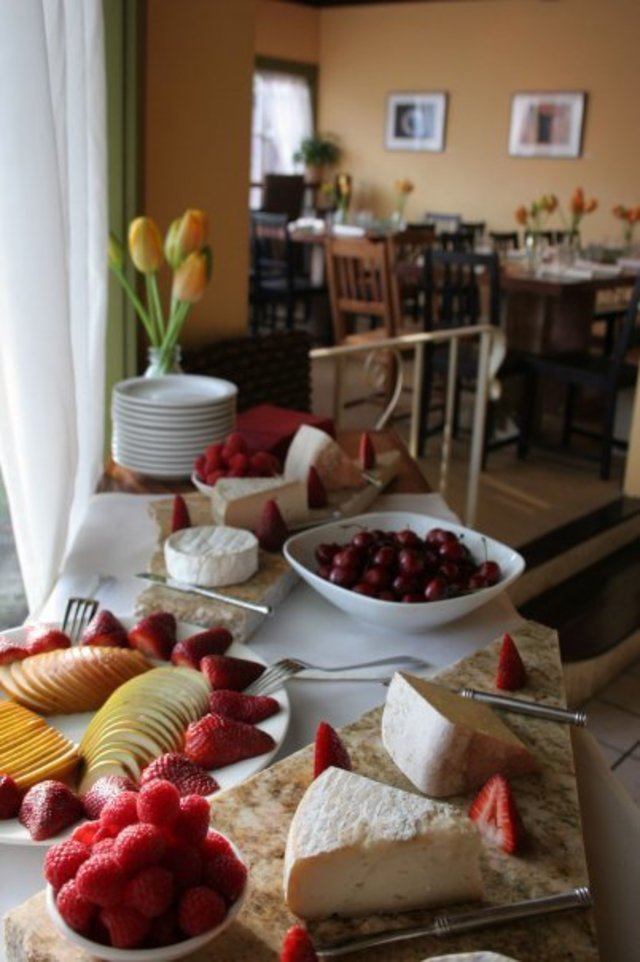Restaurateurs Use Social Media to Shame Annoying Customers

Art of the Table, sans Big Gulps.
Image: Facebook
A couple of weeks ago, Mercer Island resident Jennifer Muscatel McLeod was looking forward to enjoying dinner with her family at a favorite restaurant, Art of the Table. They’d been before and knew they loved the food—from James Beard nominated chef, Dustin Ronspies.
Previous visits had also taught them that they didn’t like the beverages available to non-alcoholic drinkers like themselves. Ronspies had allowed them to bring their own Cokes before, but this time the McLeods forgot them. So once they were seated—and had dutifully tried again (and failed) to like the restaurant’s non-alcoholic drinks—they asked their waiter if there was a nearby store where they might grab sodas.
“Coke for me is like wine for other people,” McLeod explains, adding with a laugh, “It may be low-class, but it’s the truth.”
The waiter said sure, giving them directions to a nearby 7-11 where they bought the big cups of soda with which they relished their dinner. “He’s a great chef, so artistic and flavorful,” McLeod raved. She and another family member split the $414 bill, to which she added more than her usual tip. “We usually tip extra since we don’t drink alcohol,” she explained. “We know that takes money away from them.”
So imagine McLeod’s surprise when she logged on to Facebook that night and read this on the Art of the Table page: “While dining at AOTT is ask [sic] that you please refrain from bringing 48 oz Big Gulps to dinner. It just looks bad. #nogmo #nohfcs” (The hashtags were from the Twitter feed it also went out on.)
A little later: “It also makes chefd really irritated.”
A rush of scandalized agreement from AOTT fans followed—comments like “speechless,” and “who does that??”—and McLeod read, mortified. Until she got angry.
“I understand that it is his restaurant, that he wants to maintain the ambiance and doesn't approve of GMO's or high fructose corn syrup, but he had so many choices of how to handle the situation that didn't involve calling us out in a public forum,” she wrote later. “First off, when we respectfully asked if we could get drinks from 7-11, he or his staff could have said no. Secondly, when we returned he or the staff could have taken our cups and poured the soda into more aesthetically pleasing glasses.”
McLeod’s husband immediately called Ronspies, who apologized, removed the postings, and offered a gift certificate. McLeod, however, isn’t planning to return anytime soon. Nor, from the look of it, are the friends or established Seattle family of the well-connected McLeod—many of whom immediately fired off social media opinions of their own.
“I was just stressed,” Ronspies explained when I called him about it. “I got a little freaked out when they came in with these Big Gulps, and I should’ve addressed the situation directly.”
Then this: “But I don’t understand why you would walk into a farm-to-table dining room with Big Gulps! A lot of people were on my side in this too…I’m torn between both sides.” What about replacing the cups for the diners? “Then I have these Big Gulps sitting around the place sweating and melting! I have a small restaurant. Why didn’t they just buy 2-liter cokes that we could pour into cups? It didn’t make sense to me. And now I’m looked at as the frickin’ bad guy and I don’t think that’s cool!”
Bold stand of a principled purist? Or last nail in the coffin of “the customer is always right”?
Whichever it is, Ronspies is hardly alone in it. Increasingly—the restaurateur is always rude?—social media is being appropriated to stick it to annoying customers. This winter, Michelin-starred Chicago chef Grant Achatz tweeted disparagingly of a couple who brought an infant to his restaurant Alinea. Last spring a Toronto restaurateur having a bad night tweeted, “Dear (almost) everyone in here right now. Please, please stop being such a douche.”
(She also once made fun of squeamish customers, and another time dissed Table 2 for taking too long finishing their drinks.
Make no mistake: Diners can be insensitive. The dialogue that Achatz ignited over whether diners have any business bringing infants to destinations like Alinea is particularly overdue, and probably important.
But to the extent that social media allows restaurateurs to take refuge in passive-aggressive payback—social media is fueling the antithesis of good service. Instead, restaurateurs: Talk to your customers. (And, uh, Ronspies: Talk to your waiters, one of whom obviously never got the memo that your restaurant is not to be defiled by the likes of Coke.)
Chefs and restaurateurs: Have all those passive-aggressive Yelp reviews really brought you to this?




